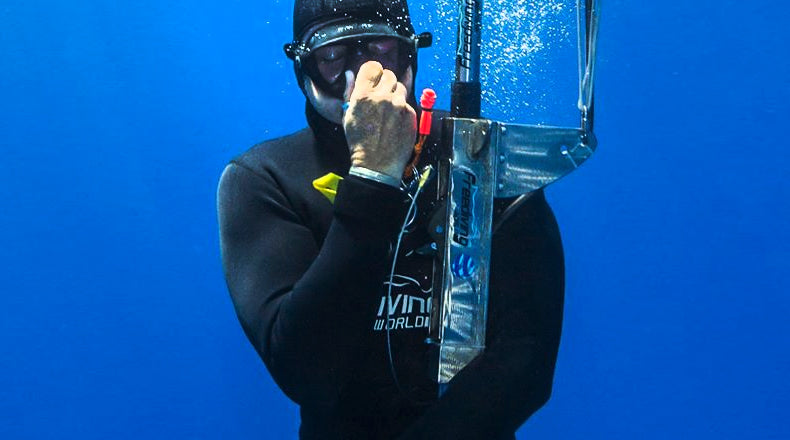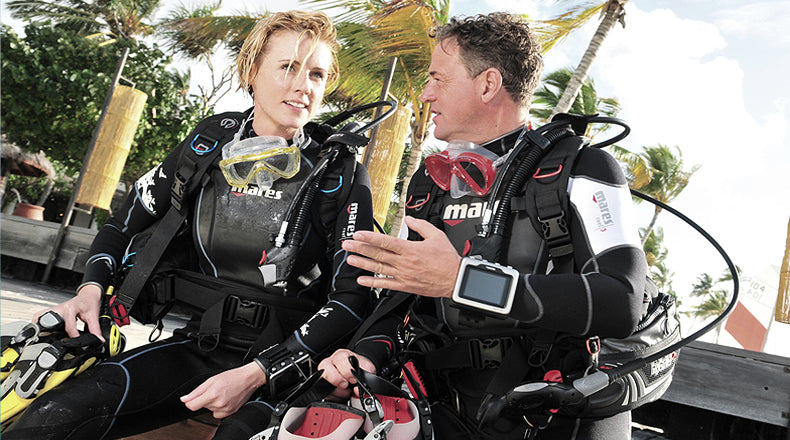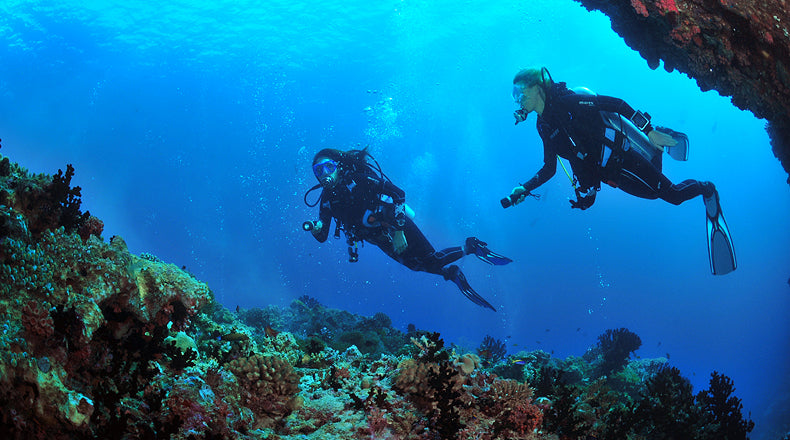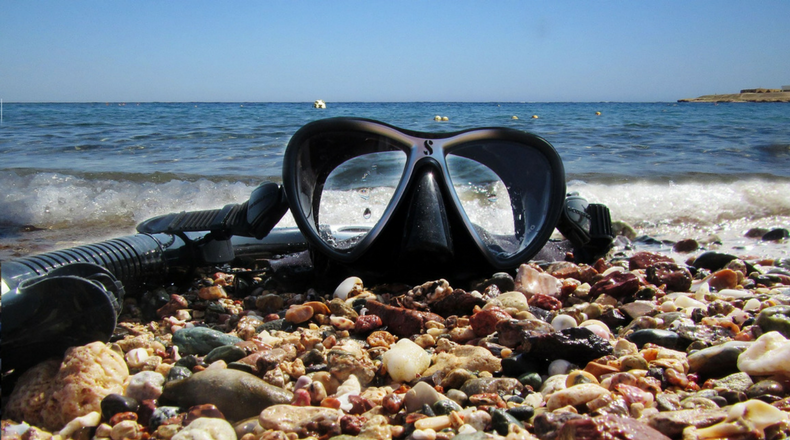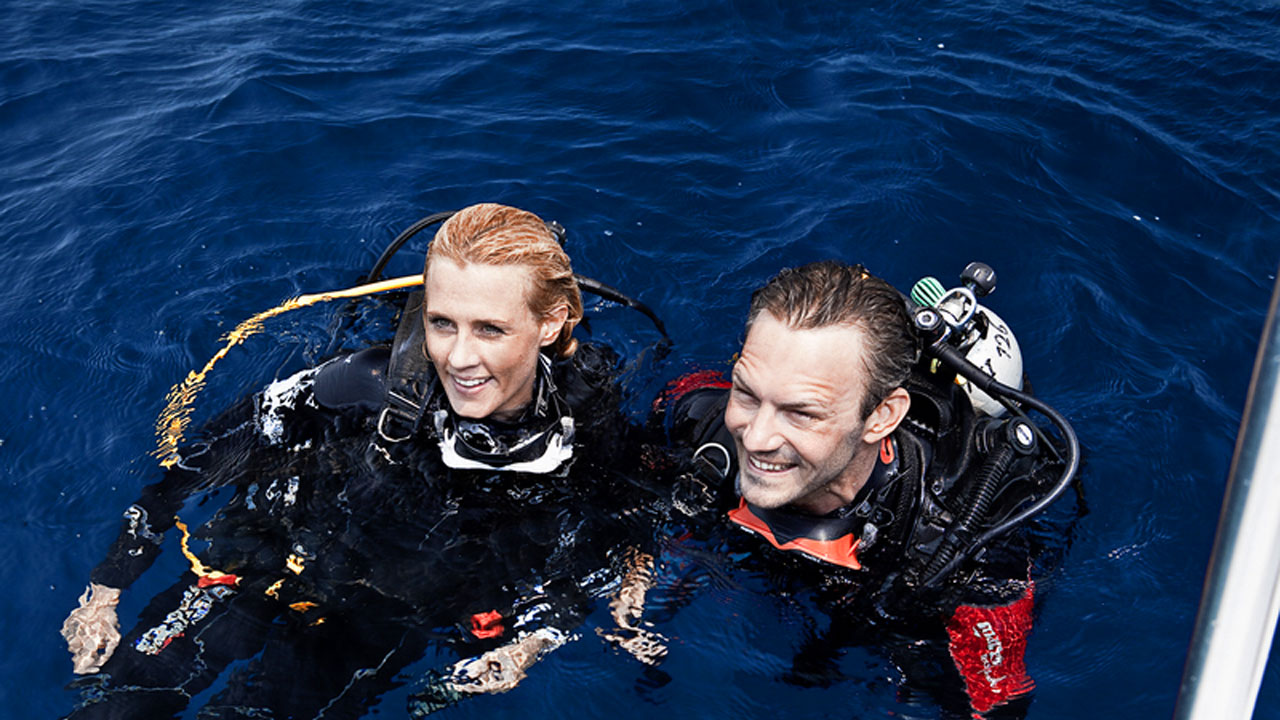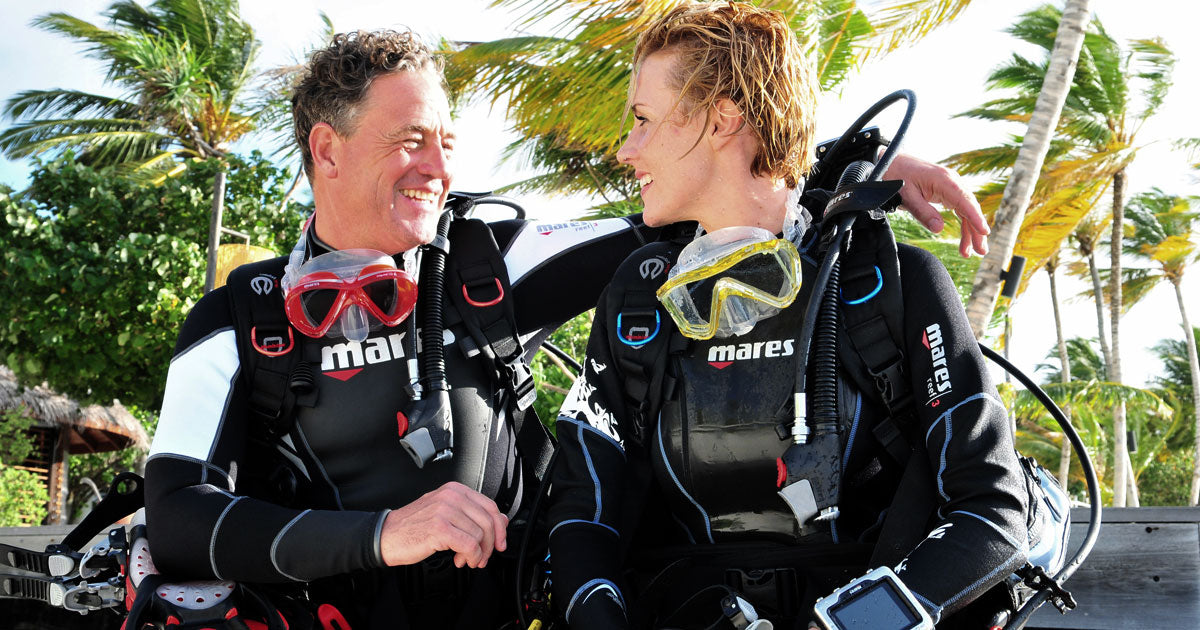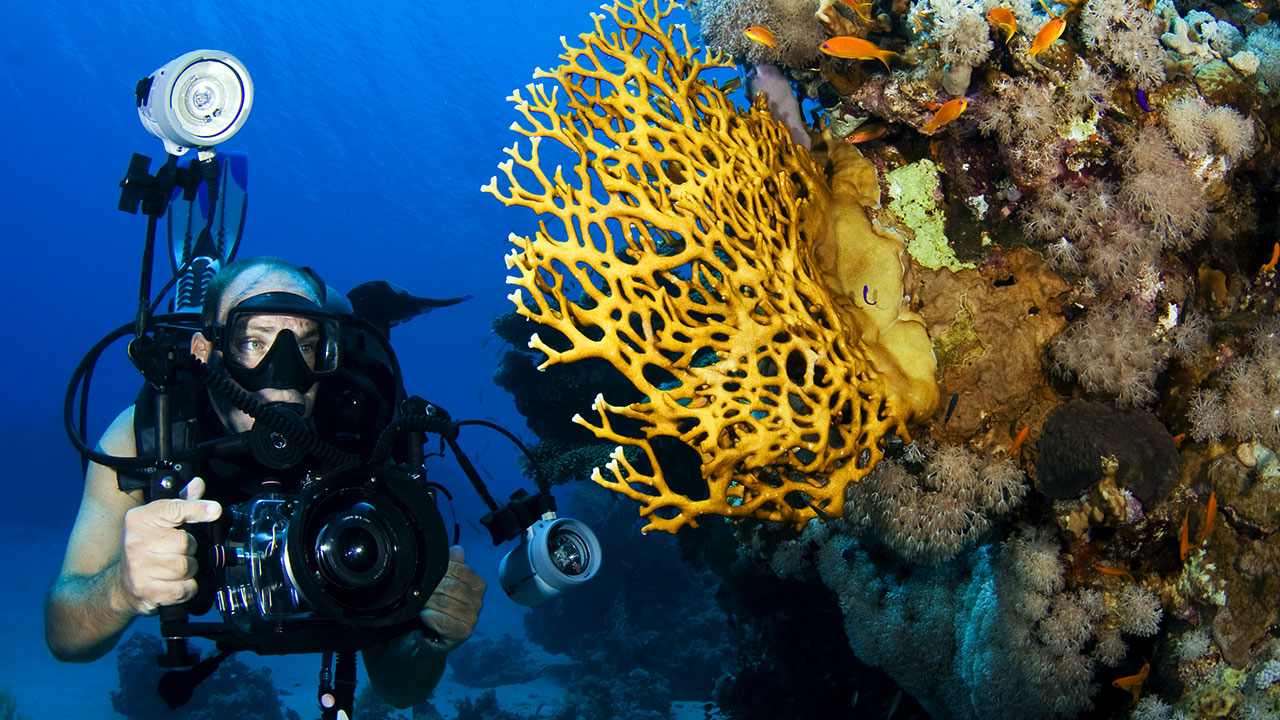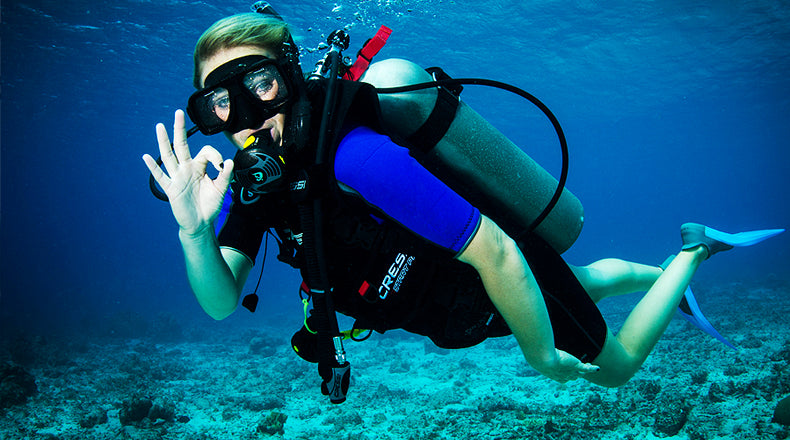Scuba Skills: How to Become a Self-Sufficient Diver

Every diver has been taught the importance of the buddy system and its role in resolving underwater emergencies. Indeed, having somebody at your side can be invaluable in case things go wrong. However, relying too much on your fellow divers defeats the purpose of the approach, as the diver who can’t help himself is likely to be of little assistance to his buddy. Therefore, you should strive to be a self-sufficient diver. Developing self-reliance skills does not only make for a stronger buddy pair but also helps, if you get separated from your buddy or for some reason need to perform a dive alone.
So, how do you become a self-sufficient diver? First and foremost, you should maintain proficiency in the skills that are used every dive. These include great level of buoyancy control, equalization, mask clearing, efficient kicking, good underwater navigation skills, and controlled descents/ascents. Be sure to practice these essential skills during every dive outing to keep them current.
Read more about each of these skills in our dedicated articles.
In addition to the basic scuba skills you will need to master some specific techniques and prepare for the physical demands associated with certain types of diving and/or environments. For example, cold water diving may require you to learn how to use a drysuit, beach diving raises a necessity to practice safe entry and exit techniques, etc. As a result, a diver who is self-sufficient in the calm tropical waters may be dependant in the harsher or simply unfamiliar conditions. So, if you are planning to embark on a new adventure that presents some unique challenges, do your research. Learn as much as you can about the necessary skills, equipment and the conditions at a chosen dive site. Talk to local divers and, if relevant, consider taking a related scuba course. This won’t necessarily make you self-sufficient in the new environment, but will at least give you a good start.
The next step is going over all emergency procedures. Make sure you know how to deal with difficult situations on your own and how to react if your fellow diver needs help.
First and foremost, remember, it’s always easier to prevent a problem than to solve it. Planning ahead, maintaining your equipment properly, having it regularly serviced, monitoring your depth and gas supply, following your dive plan and staying within your limits will significantly decrease the chances of any emergency happening.
However, in case some difficulty does arise, you need to be prepared to resolve it. Emergency ascent is one of the most important skills you should master as a self-sufficient diver. If you cannot perform an alternate air source ascent, An emergency swimming ascent (ESA) is your second best option. The technique will allow you to safely make it to the surface without a functioning air supply if you are within your ESA depth range. When performing an emergency swimming ascent, don’t forget to exhale continuously and deflate your buoyancy compensator while swimming to the surface. Also, keep the regulator in your mouth and swim slowly not to exceed the safe ascent rate. An average scuba diver will be able to successfully complete an ESA from 30 feet (9 m). While some divers can perform this skill from greater depth, remember, the deeper you go, the more difficult it becomes. Therefore, you should also be able to quickly determine whether or not you are within your ESA depth range and immediately consider other options.
Some other skills worth practicing are regulator recovery, no mask breathing and mask replacement, removing and replacing your scuba unit underwater, etc.
Gear familiarity is another factor that can make you more confident in the water and help you deal with emergencies effectively. Even though divers are taught how to react to the most common equipment problems, when encountered at depth even such minor issue as a leaking mask can disorient or even cause panic in an inexperienced or rusty scuba diver. For this reason you should prepare yourself for all kinds of potential issues with your equipment. A good method to do this is go over each piece of gear and visualize what type of malfunction might occur and how you can handle it. For example, let’s look at some possible issues that can happen with your BCD. Basically the two scenarios are auto-inflation or uncontrollable loss of air from your BC. In the first case all you need to do is disconnect the low-pressure hose from the inflator and for the remainder of the dive orally add air to the BC as needed. If you’ve got the opposite problem and your BC won’t inflate or starts leaking, you should simply ditch enough weight to establish neutral buoyancy and start ascending slowly, ditching more weight if needed. Imagine yourself performing all these actions. Do the same with each piece of equipment. This way you will know what to do if any piece of your gear fails.
Although it may seem obvious, double check if you have all the necessary gear and accessories before going into the water. In addition to carrying the standard scuba unit and some essential accessories, consider taking a few extras or redundant gear. These include a dive knife, backup dive computer, dive slate, dive light (day or night) and surface signaling devices (preferably at least two - visual and audible). A redundant air supply, such as a pony bottle is another great accessory to have, as it will eliminate the need to perform an emergency ascent in an out-of-air situation.
Finally, if you want to be a self-sufficient diver, you should stay physically fit. A high level of diving fitness will minimize the risk of overexertion, muscle cramps or other physical issues at depth. The best exercise programs for divers combine aerobic exercise and good nutrition for weight management with strength exercises that simulate the biomechanics of diving. In other words practice using the muscles required for diving.
As you can see, being a truly self-sufficient diver requires a lot of knowledge and practice. You should be completely comfortable in the water and confident that you can execute all scuba skills, and handle any emergencies. However, it also presents many rewards - not only self-sufficiency makes you a better buddy, but it also gives you more freedom if you want or need to dive alone.

